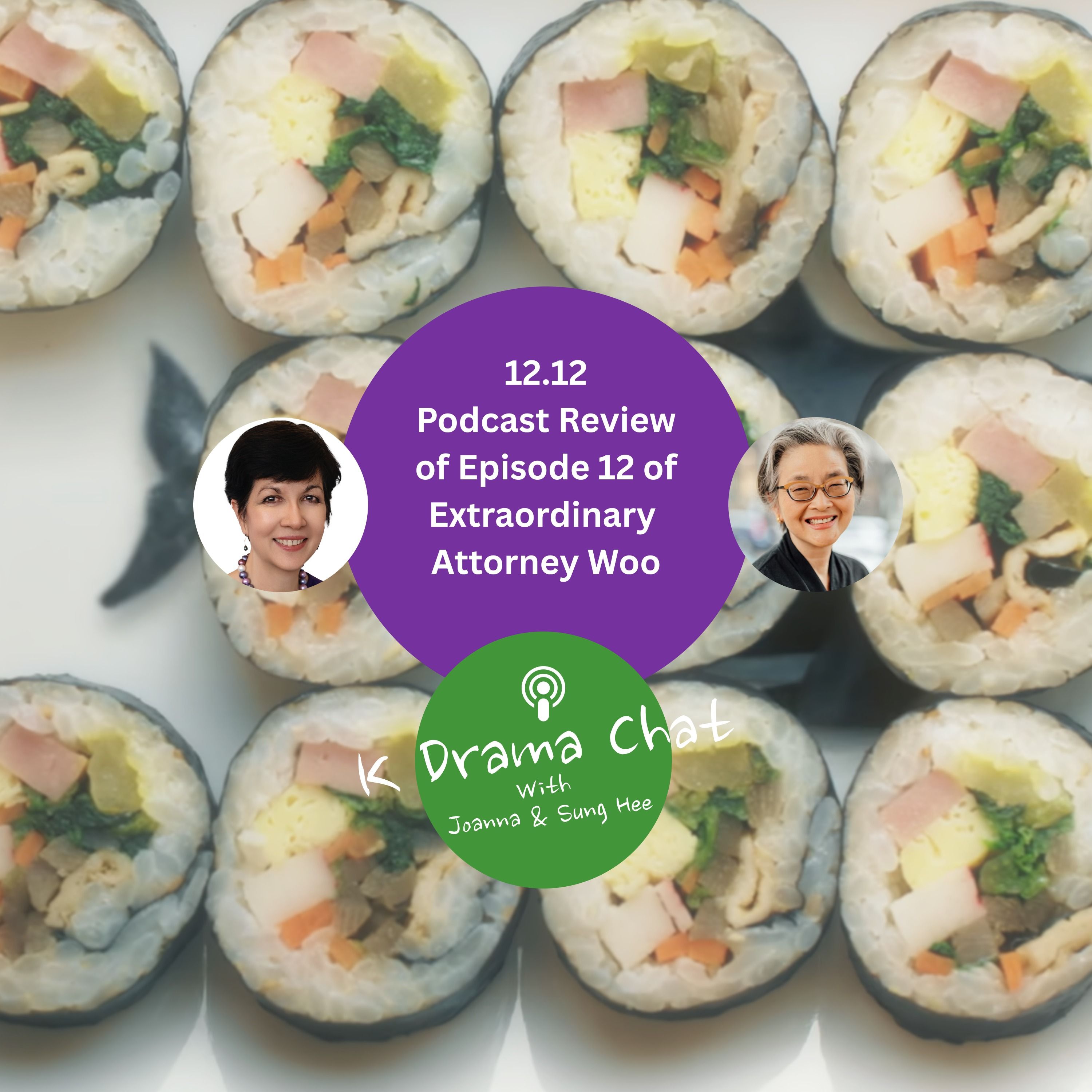Episode Description
Comment on this episode by going to KDramaChat.com
Today, we’ll be discussing Episode 12 of Extraordinary Attorney Woo, the hit K Drama on Netflix starring Park Eun-bin as Woo Young Woo, Kang Tae-oh as Lee Jun-ho, Ha Yoon-kyung as Choi Soo-yeon, Ju Hyun-young as Dong Geurami, Kang Ki-young as Jung Myung-seok, and Joo Jong-hyuk as Kwon Min-woo. We discuss:
- The songs featured during the recap: “One Two Three Young Woo” by Jo Byeong Hyeon and “H” by Roh Young Sim. The first is quirky, while the second is melancholy.
- The political and ethical complexity of Hanbada’s involvement in drafting a policy that led to mass layoffs of married women.
- The fierce and principled attorney Ryu Jae Sook, who champions women’s and labor rights, and who offers a thought-provoking contrast to Hanbada's corporate approach.
- The idea of generation names in Korean clans, and how these were used to explore the relationship between Judge Ryu Myeong Ha and Attorney Ryu Jae Sook.
- Attorney Jung’s jarring statement that attorneys are not meant to make the world a better place, but to defend their clients, no matter who they are.
- Woo Young Woo’s internal conflict as she receives a job offer from Attorney Ryu and wrestles with what kind of attorney she wants to be.
- The damaging but clever tactics of Kwon Min-woo, who secretly mails a legal memo to the opposing counsel in an attempt to frame Woo Young Woo.
- The brutal emotional toll of litigation, as personal and irrelevant information (such as fertility treatment) is dragged into court to discredit the plaintiffs.
- The bittersweet conclusion to the case: the women lose in court but win in the court of public opinion and in moral conviction.
- The evolving relationship between Woo Young Woo and Lee Jun-ho as they try to navigate differing perceptions of what it means to be a couple.
- The quiet decline of Attorney Jung, whose stress and physical deterioration hint at serious underlying health issues.
- A linguistic and cultural deep dive into the Korean pronunciation of family names such as Choi, Park, and Yun, and the surprising differences when romanized.
References
